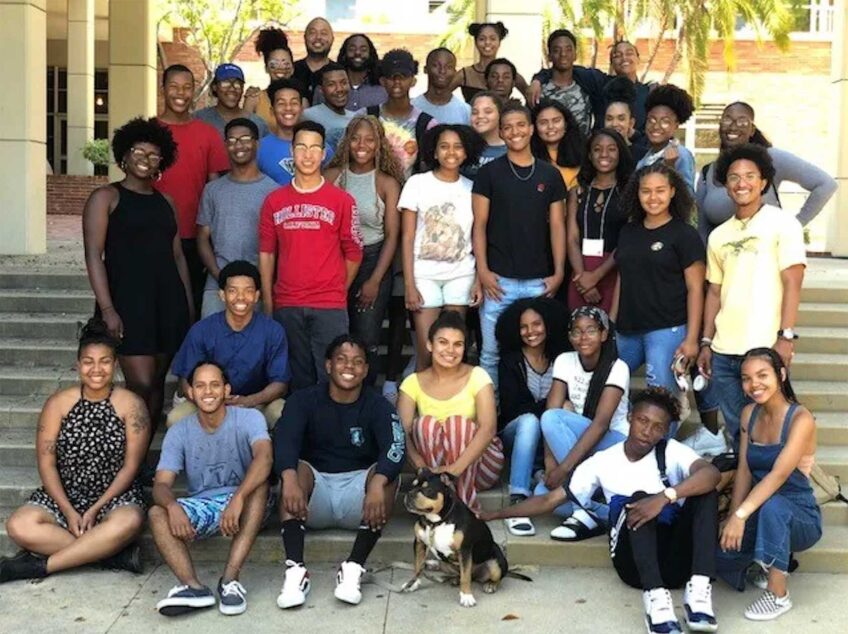The NFL still says Kaepernick isn’t being blackballed; here’s why they’re wrong
Three NFL executives and one coach recently talked candidly, while requesting anonymity, about Colin Kaepernick. Once again they hotly disputed the notion that Kaepernick isn’t unemployed because of his stance on the national anthem, his political activism, or the sense he would be a distraction.
He’s not in the league, they reiterated, because he doesn’t fit into the offensive scheme that a particular team runs.
It’s a football decision, pure and simple.
The wrinkle this time is that the coaches and management who spoke about Kap got specific and named the teams that have been bandied about as possible fits for him, and then promptly ticked off the reasons why each of these teams took a pass.
Again, the decision was purely football, rather than fear and politics.
The NFL guys routinely back up their assertion that Kap is unemployed by endlessly saying, first, it’s a football decision, and second, the NFL is not racist because it is overwhelmingly black, with lots of black coaches and GMs. Many are making big bucks and often make key personnel decisions.
These are tough arguments to get around.
But actually, there’s powerful refutation of that takes the steam out of them. For openers, we can cite NFL owners and the Commissioner’s own words.
New York Giants owner John Mara gave the first tip-off last May. He minced no words when he said that he received tons of angry fan mail warning that if the Giants dared bring Kap in, they would pay dearly for it via a fan shutdown. Mara slightly walked his remarks back months later, by saying that he expected Kap to find a spot in the league at some vague, unspecified point in time. But he was careful not to imply that that spot would be on the Giants.
Next up was Baltimore Ravens owner, Steve Bisciotti. He said that the team was “sensitive” to the issue. Translated, that meant he was listening closely to the fans who, as in New York, loudly said they didn’t want Kap on the team. Team President Sam Bass doubled down on Bisciotti’s comments. He said that they were carefully monitoring fan reaction.
Then there was Jacksonville Jaguar owner Shad Khan. He made news when he said that he was “open” to signing Kaepernick. But he quickly added that the decision ultimately was up to the GM and the coach. Both were stone silent on what they thought of Kap. But Khan’s stated “openness” to signing him was just PR talk, since he quickly punted the decision to others in his organization who had absolutely no interest in doing so.
As for NFL Commissioner Roger Goodell — for his part, he tried mightily to avoid saying anything about Kaepernick. When he finally was cornered, at first he fell back on the standard “it is a football decision” line. But in a more revealing remark, Goodell made it clear that patriotism and support for the military were a big part of the NFL’s culture.
He didn’t come out and point to Kap as one who went against the grain. He didn’t have to. Dallas Cowboys owner Jerry Jones did that for him when he made clear that respect for flag and country were huge concerns for his team, “America’s team.” Jones spoke for many of the other NFL owners.
In the weeks since the NFL camps opened officially, rumors about Kap signing with this or that team have abounded. In each case, they ignite the inevitable brief flurry of chatter and speculation that Kap could finally find an NFL home. But in each case, the talk quickly fizzles, once there is no invitation for a tryout, let alone a signing.
The owners and team managers are right, though, in one respect. Kap’s absence from the league isn’t due to any conspiracy or because the NFL inherently is racist. NFL watchers can argue that with all those big-name, big-money (including, at one-time, Kap himself) black players in the league, you can’t accuse it of being racist because Kap isn’t playing.
Rather, the answer lies in the NFL’s structure. It operates not as a democracy, but as a top-down organization run by an entrenched and elite corps of billionaire owners who set league tone and policy.
The NFL power brokers have the authority to enforce their take it-or-leave-it imperium on the players, fans and politicians. They don’t have to huddle behind closed doors and decide to keep Kap out of the NFL. It’s simply understood, a gentleman’s agreement if you will, that he’s not a fit for their league. This has nothing to do with on-the-field needs, and everything to do with the point that it is their league.
Earl Ofari Hutchinson is an author and political analyst.






